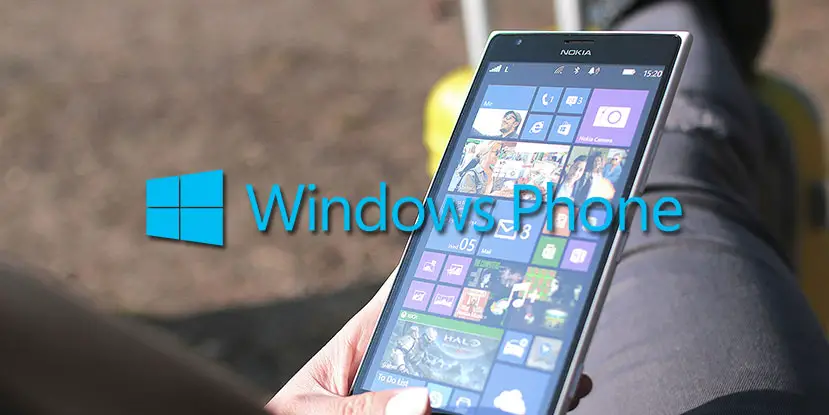A little over two months back I hit the breaking point. Android, or more to the point, a certain set of Android users, drove me off the edge of the cliff. I had spent almost 3 years in the Google ecosystem, done just about everything possible from a Root / ROM standpoint, and just felt like it was time for something new. So, I dove off head first, no looking back, and threw myself into a new Samsung ATIV S NEO, running Windows Phone 8. This was a pretty logical move on my part, for two reasons. One, most of the interactions I deal with for work are done via Microsoft products and services, and two, no way in hell was I going to use an iPhone. I have standards. After 60 days in, here are a few of my thoughts and conclusions about Windows Phone.
Windows Phone 8 is an OS that has a HUGE potential. It could be so much more than it is, but it feels held down by a lack of simple features that anyone would expect to see in a matured OS. For example, there is a complete lack of ability to adjust the volume for different types of sound output. Everything runs through one volume control, from music to message alerts and ringtones, there is no variation, and it is damn annoying. What it led to was having to micromanage my phone big time. Since I had no way to discern what app that last “Ping” was coming from, it was impossible to triage. Every notification had to be checked, and when you work in a business that uses IM communications 20-30 times a day on top of 10-15 emails a day, it was just too much.
On the high side, the volume thing is really my biggest complaint about the OS as a whole. There are plenty of small features that need to be added or tweaked before Windows Phone can really be considered ready for the big kids, but most of those holes can be worked around, or adjusted to. Microsoft appears to be heading in the right direction with this, as the GDR 3 update addressed some of these specific issues, so patience may be the best course here. On the subject of the GDR3 update, if you are not aware of the stroke of brilliance the “Developer Preview” update is, check out the details here . If anything, it shows that Microsoft has contingency plans in place to deal with carriers or OEM’s that drag their feet pushing updates, without resorting to the draconian control Apple imposes.
The app ecosystem is…well, there is no nice way to put it, a wasteland. At just over 100k apps, it feels incredibly empty, and full of repetition. I lost track of the number of weather apps available. The Store app is challenging to navigate, as there are no pictures of apps in action, and the descriptions tend to be very short, but a quick move to the desktop version gets you a much fuller array of content, as well as pictures. If you are browsing apps, use the desktop interface, period. Everything on the app Store is “try before you buy,” allowing users to sample an app fully before making a purchase decision. It is a nice touch, but it is offset by the fact that there are no refunds on purchases, and there is no cross platform unification. Microsoft sees Windows Phone 8 as one OS, and Windows 8 as another, leading to a good amount of apps that need to be purchased twice. Halo: Spartan Assault was the only app I found compelling enough to do that with.
There are some bright spots in the desert though. Games like The Machine, and Minicraft, and a bevy of solid productivity apps like Super Calendar, IM+ and MyTube, are bolstered by an incredibly useful suite of Bing powered apps from Microsoft. Bing News, Sports, and Finance were the mainstays of my start screen. Having native MS Office and Skydrive at my fingertips was the highlight of my time on WP8. The ease and speed of document management and control is excellent, and perfect for those that work on their mobile device. These few points of light, however, do not erase the very real problems that Microsoft is continuing to have with attracting developers, and increasing the user base for Bing. Both are going to be vital to the survivability of Windows Phone as an OS, and to Microsoft as a whole. The problem is, it does not appear that the current leadership within the company has a clear plan for addressing either issue, short of cash incentives and negative ad campaigns, neither of which have shown success in sustaining long term growth.
Bing is just as integrated into WP8 as Google Search is in Android. It has a ton of functionality, including image and barcode searches baked into it, which is something Google is still app-dependent for. While the mere mention of the word sends lightning bolts through the brains of some people, I used Bing as my primary search engine for over a month, and Ragnarok did descend upon us. The most remarkable thing about the engine is actually how unremarkable it is. That’s not to say that Bing is not a rock solid search engine, fully capable of competing with Google on any given day, because it is. It is simply to say that the results, presentation and quality of searches were exactly the same as one would expect from any top flight search engine. I did enjoy the ability to grab any image straight from search, and set it as my lock screen wall. The Modern / Metro UI really shines with the ability to swipe between search categories. It speeds things up quite a bit. On that note…
Let’s talk about Modern UI for a minute. Honestly, I really did not expect much out of it, but found myself pleasantly surprised. Yes, there is little in the way of customization other than color and arrangement of tiles. No, there is really very little that you can do to work around that, other than the occasional app that lets you set an image for its live tile. Despite that, I found a really cohesive, very intuitive and user friendly experience. This is a UI that offers a level of design unification that Android would love to have. Apps, menus, and overflow interfaces all use the same input style and navigation, making for a very small learning curve. I very much felt like this was an OS designed with work and productivity in mind first, entertainment second, and the UI functionality reflects that perfectly.
Coming from long term Android use, Windows Phone 8, while possessing some unique qualities, never really broke out of the “Serviceable” category for me. I did enjoy the ease of having native Office in a portable format, and found the Bing experience excellent enough to make it my full time search engine, but the dearth of little things that were missing became its downfall for me. While I can’t place my finger on any one single aspect of Windows Phone 8 that drove me back to Android, if I had to pin it down, it would be the lack of integrated features, combined with a lack of apps to fill the gaps. The OS feels not unlike Android in the 2.2 days, finding its footing, and starting to define its direction, but with a long road to maturity in front of it. If Microsoft can continue down that path, then Windows Phone has a chance at survival in this increasingly competitive global marketplace.
We would love to hear about your experiences on Windows Phone, as well as your general thoughts. Sound off in the comments below, or on our Google+ page and Twitter.











